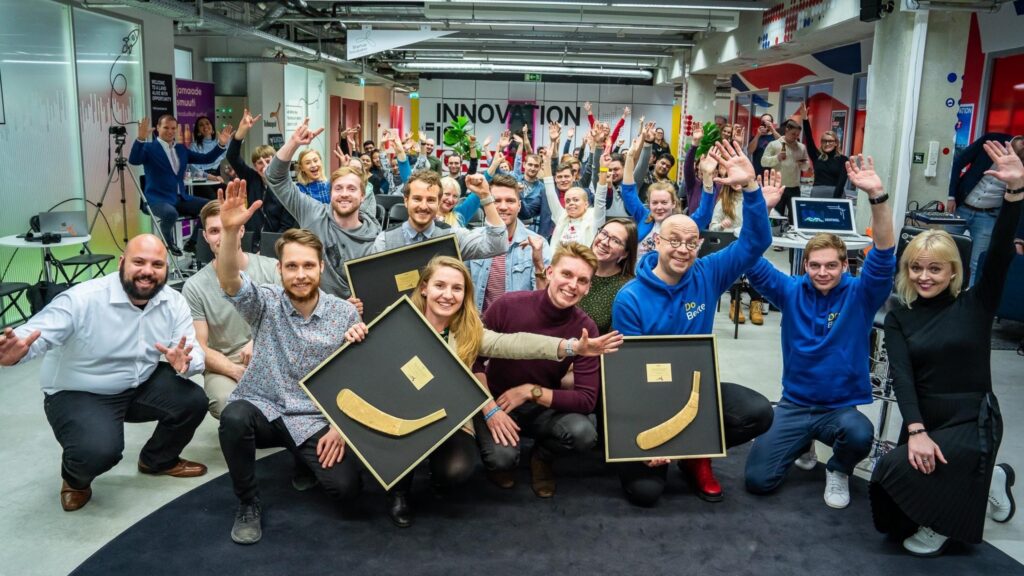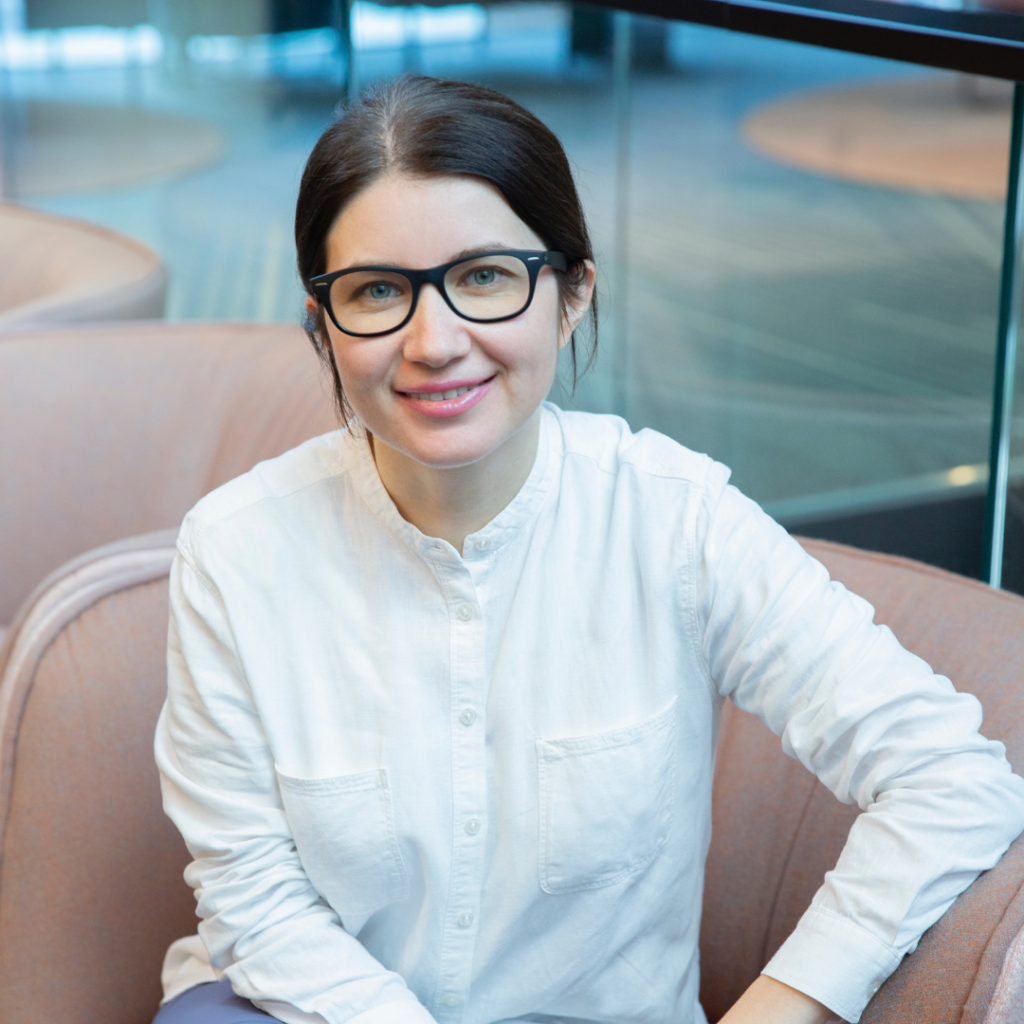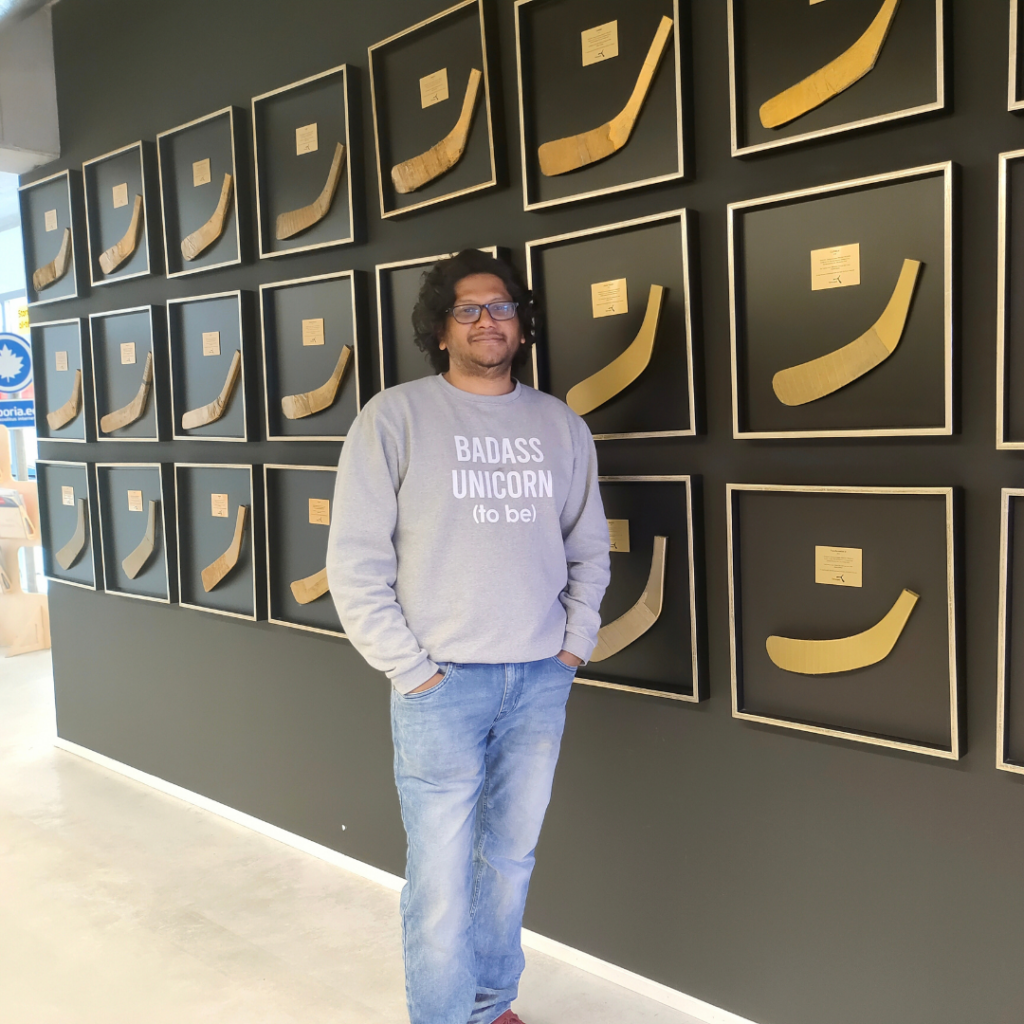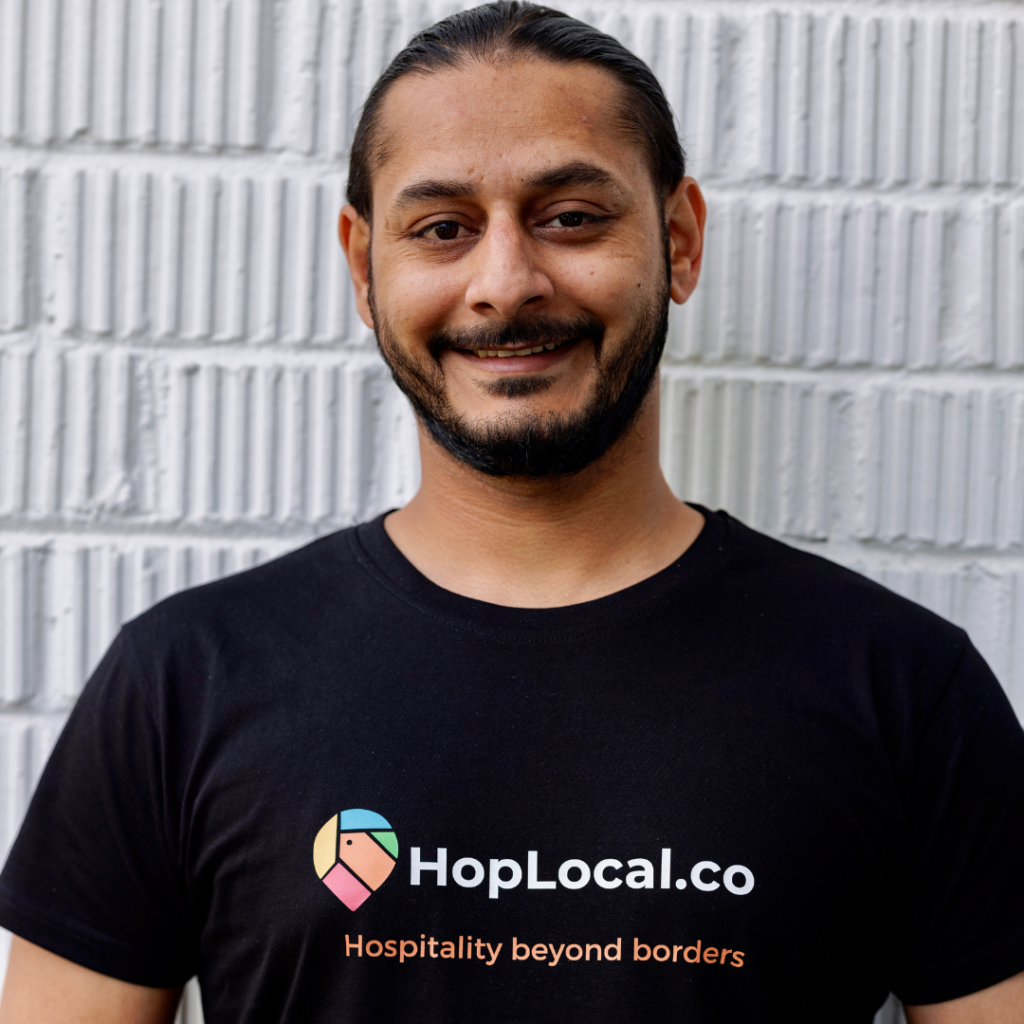18.01.2023
What attracts foreign founders to Estonia? Four cases from the Tehnopol Startup Incubator

What brings foreigners to Estonia to found companies, and what are our advantages over other startup ecosystems? We spoke to four foreign founders who have participated in the Tehnopol Startup Incubator growth programme or are active members right now, to find out about their journeys and about building a startup in Estonia.
Olena Iosifova, co-founder of Ender Turing
Olena Iosifova began building a startup together with another Ukrainian founder in 2018. The idea they had at that time was different from the one that became Ender Turing, the startup that she is currently building and managing. When they were trying to decide where to base their startup, they created an Excel file to calculate which country would be the best to start in.

“There were a lot of parameters from the index of doing business, taxes, and government support for entrepreneurship, to things like even how clean the air is and how safe it is to live in a city. Estonia got the highest rating and we decided to move here”, says Olena, who had not previously visited Estonia.
She admits that they had only a vague idea about the startup ecosystems in other countries, which they had gleaned from reading about them on the internet and checking what support is provided to foreign founders. “In 2018, many countries were not very founder-friendly, but Estonia had the most attractive conditions”, she recalls.
Today, Ender Turing has created the fastest-to-value Speech Analytics software for 24 languages. Their main clients are from the Financial Services Industry and public call centres.
Vijaya Kumar Channalli, co-founder of KonnectzIT
Vijaya Kumar Channalli recalls that he was very interested in Estonia’s eResidency programme and the opportunities it offered. “I applied for eResidency back in 2017, which sparked my initial connection with Estonia. However, it wasn’t until 2020, when I exited from my previous startup, that I decided to take advantage of this connection. My co-founder and I were in the early stages of developing a new startup, KonnectzIT, and we saw Estonia providing a great opportunity for where to launch it”, says Vijay.

Estonia’s supportive startup community and government initiatives for startups were very attractive to them. Their startup KonnectzIT is a data automation Saas platform, and so compliance with the GDPR regulations was a major factor in their decision to establish the company in Europe, and specifically in Estonia.
“We were able to establish the company in October 2020 through eResidency quickly and easily, and we were also approved for the Startup Visa”, recalls Vijay.
His previous startup operated in the US market, which has a larger pool of potential investors and is known for its strong entrepreneurial spirit and a large market that can give great opportunities to startups. However, Vijay says that the government initiatives for startups are very attractive in Estonia, and the eResidency programme made it very easy to establish the company remotely and to comply with all the regulations.
“The cost of living and doing business is relatively low which made it a more cost-effective option for me”, he adds. “The eResidency team marketed Estonia as a great place for a startup”.
Parmeet Sawhney, co-founder of HopLocal
Parmeet Sawhney used to manage a co-working space in New Delhi. One day, a foreigner living in the city dropped in for a meeting and they began to chat. Parmeet found out that this man was from a country called Estonia. “That was the first time I heard about Estonia and I was so amazed by all the cool things he told me about this country”, recalls Parmeet. He then began doing some research about Estonia and was surprised and amazed when he read about the Estonian startup ecosystem.

He was considering pursuing an MBA in International Business Administration in one of several universities. “I came across Tallinn University of Technology and I was impressed by the way they had designed the course. I instantly knew that this is the place I would like to be to kick-start my entrepreneurial journey. I applied for the programme and came to Estonia in the autumn of 2019, just before Covid hit”, says Parmeet.
He also has experience from the Indian startup ecosystem, where he worked as the community head for one of the leading startups called CoWrks. One key difference between the Indian and Estonian startup scenes in his opinion is how easy it is to get into the ecosystem. There were quite a large number of startup events in India, and fireside chats with great startup founders. Such events really help you get a picture of the industry, and give you key insights and the chance to network. Investors were also relatively more approachable.
“Due to the huge difference in TAM between the two counties, it’s of course easier to get pre-seed funding in India as well”, says Parmeet. As the whole ecosystem was growing at a rocket-powered speed, it had become quite normal to read in newsletters about 10-30 startups getting funding each day. The appetite for risk-taking was large among both entrepreneurs and investors. “I also noticed that a lot of foreign startups were launching their operations in India and venture funds were also actively participating in funding them”, he recalls.
Finding a co-founder was a little easier in India, especially one working in tech. At the same time though, the ease of doing business is much greater in Estonia. “Right from opening a company online in just five minutes to finding all the public services available online made my life much easier. I wouldn’t be able to get started this easily in any other country I’ve lived in so far”, Parmeet says. He notes that one thing that makes Estonia stand out from the rest is Smart ID.
Parmeet’s start-up HopLocal offers a one-stop-solution for team events that allows team managers to find the best events for them and to book them in under a minute. This saves companies hundreds of hours of unproductive effort.
Khuldoon Bukhari, CEO & co-founder of Envelope
Khuldoon Bukhari came to Estonia in 2014 to pursue a Bachelor’s degree at TalTech, but he stayed for his Master’s degree because the university employed him as part of the IseAuto project, which was the predecessor to AuveTech. He then worked at Comodule as a firmware engineer and later as a cloud engineer. While working at Comodule, Khuldoon founded Envelope with Taras Maslych, Tengiz Pataraia, and Vladimir Kuts.

He only left Comodule in February 2022 to focus full-time on Envelope, and in October his company closed a pre-seed round of half a million euros led by Superhero Capital. “You could say I came to Estonia for education, but I stayed because Estonia kept offering new opportunities”, says Khuldoon.
Khuldoon has never worked for a company anywhere other than Estonia, but after talking to classmates and colleagues elsewhere, and comparing their experiences of starting companies, he is certain that Estonia has got a lot right. “There are a lot of people who are willing to help and overall I find the ecosystem in Estonia to be the most welcoming. As a founder, I can say that the ecosystem has lived up to my expectations”, he explains.
That being said, Khuldoon thinks there are some things that could be improved. The first is startup perks and credits, as a lot of companies like Google Cloud and many others offer very generous startup packages that are often unavailable in Estonia. A second is that accounting in a startup is very simple and can be handled by a founder in the early stages, but Khuldoon says that this information is hard to find in English. “The community has done an excellent job of explaining the legal system and company registration and administration. I would like to see the same for accounting”, he says.
And the third thing that could be improved is the shallowness of the talent pool. “Hiring in Estonia has been hard because the talent pool is limited. And remote hires get very expensive when you use platforms like Deel”, says Khuldoon. He would like to see the community offer a bit more expertise to help with this issue. How can we hire remote workers from within the EU without paying a 30-40% overhead to other companies for example?
Khuldoon’s start-up Envelope is a retail tech company that helps supermarket chains and FMCG companies achieve better on-shelf availability by automating product monitoring and avoiding out-of-stock scenarios. They use cameras and computer vision to eliminate the need for manual shelf audits and a web platform to share the information securely with all stakeholders.
If you would like to begin your startup journey in Estonia, check out what eResidency offers and apply to the Tehnopol Startup Incubator. We are currently accepting applications to our impact startups batch!

















